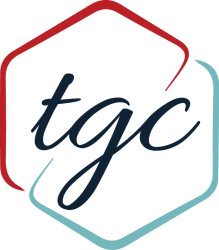
To me, coffee has always been the number one go-to for early morning and mid-day pick-me-ups. It’s clear to see, especially as a student on a college campus, how many people are about to fall asleep at any given moment without that little burst of caffeine in their day.
Benefits and risks are associated with most caffeinated substances. If you have too much, you’ll probably start acting like a maniac, experience anxiety or start talking at a mile-per-minute.
I have decided to break down the caffeine content, pros and cons of each of these drinks that we consume daily.
COFFEE:
Coffee is a deliciously (ok, I’m biased) dark and nutty beverage. Coming from coffee beans, this drink is all natural. The caffeine content can vary from 30-173 mg for your generic home-brewed cup.
The pros are waking up, getting your caffeine on and having an excellent day. The con? If you drink more than a cup or two a day, you risk dehydrating your body severely.
Avoid this by drinking a lot of water on coffee drinking days. Coffee is also a strong stimulant and can tend to hurt sensitive stomachs as well as other organs. Coffee can also cause anxious or jittery behaviors – try drinking “half-caff” instead.
For more information on caffeine, visit http://www.mayoclinic.org/healthy-living/nutrition-and-healthy-eating/in-depth/caffeine/art-20049372?pg=2
TEA:
Like coffee, tea can be made in many forms and depending on the type, caffeine levels vary. Black tea is typically the strongest at anywhere from 14-64 mg per 8 ounce cup.
Unsweetened tea can aid the body in many ways. It can help with digestion, diabetes, skin issues, liver problems and much more.
Some see tea as a “lesser” form of caffeine because it’s not as instant as a coffee, energy drink or Cola. The caffeine will eventually kick in and likely keep you up at night if you consume too much tea during the day. A tip is to switch to decaf tea.
For more information on tea, visit http://www.livestrong.com/article/501108-pros-and-cons-of-drinking-unsweetened-tea/
ENERGY DRINKS:
Energy drinks are slowly becoming more natural, but companies such as Rockstar and Red Bull are still in business.
Energy drinks are used to boost energy and help sharpen alertness, and are used typically for a long day of work, a long night out or before a workout.
They are pretty much available everywhere and are a really convenient drink that provides around 80-200 mg of caffeine per can.
Sadly, they are filled with chemicals and toxins as well as a high amount of sugar. These drinks can lead to cardiovascular problems, increased blood pressure and obesity if consumed regularly.
For more information on energy drinks, visit http://healthresearchfunding.org/pros-cons-energy-drinks/
SODA:
Soda is something I don’t really care for anymore. I rarely drink it and have grown to hate the taste of such a sweet drink.
There are many folks out there who look to a Coca-Cola, Diet Coke, Dr. Pepper or Pepsi for a burst of caffeine and sugar that gives them energy to continue working.
A typical soda beverage has anywhere from 35-50 mg of caffeine. This will definitely give you a quick spike of energy, but because of the added sugar and artificial flavorings it can rapidly drop you off back where you started.
A soda can contains about 40 grams of sugar, on average. Drinking soda daily has been linked with weight gain, heart problems, various cancers and also creates a cycle of sugar addiction.
For more information on soda, visit http://www.onecanofsoda.com
So, pick your poison! It seems that tea is the healthiest choice, but to each their own. Now, excuse me while I go brew some Starbucks Colombian Roast in my kitchen.

